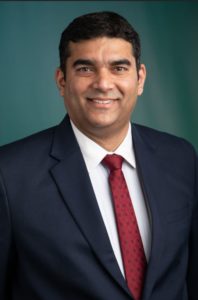Foreign investors have been attracted to India for some years. Are there any recent developments that make India more attractive as an investment destination for institutions?

Alvaro Camunas, head of client development at BNP Paribas Securities Services
Alvaro: At the end of the day, what are foreign investors expecting from a country? They are looking for a stable political environment, a legal framework that gives them comfort, obviously a positive macroeconomic environment and then ease of access. If you are a foreign investor and you look at India today compared to five to ten years ago, you will definitely see a positive trend in each one of those elements.
Institutional investors are also investing for their clients, so they need to make sure that there is an appropriate level of protection of those assets. Foreign investors should definitely feel more comfortable now in growing their investment in India.
Akshay: The first key point that Alvaro mentioned is political stability. The longevity and stability of the current government has had a positive impact on regulatory reforms and on the attractiveness of India as a foreign investment destination.
The current government has been very reformative. We can see that in all sectors over the last four or five years, not just in capital markets and banking. We expect to see more in the coming years, and those reforms are resulting in greater foreign inflows. Both stock exchanges in India, the Bombay Stock Exchange (BSE) and the National Stock Exchange (NSE), have recently reached record highs.
For BNP Paribas Securities Services India, I can tell you that over the past year, we have seen our assets under custody onshore in India double and our settlement volumes are almost four times higher. As a securities services provider, we are also seeing the same kind of business ramp up as the exchanges are reporting publicly.
How much of that is existing investors increasing their volume and how much of it is new, first-time investors?

Akshay Thakurdesai, head of BNP Paribas Securities Services India
Akshay: I’d say 50% of that ramp up is from new FPIs. Our own FPI clients and assets under custody have gone up by 50%. March 2021 saw the largest monthly increase in FPI registrations since the scheme’s inception.
If I’m attracted to investing in India and I’m not there yet, how much of the process of getting authorisation do I need to do, and how much can you or another intermediary do to make it easy for me to get in?
Akshay: It used to be that if you wanted to open an account in India as a foreign institutional client especially, you would need months of effort and numerous documents. That has completely changed now with the advent of the FPI regime. Last year in particular, there was significant reform coming from SEBI, the regulator, on custody. BNP Paribas was part of that forum, and we along with other custodians proposed certain enhancements, most of which have been taken into consideration. One of them is a simplification of Know Your Customer (KYC). There is now a Common Application Form (CAF). BNP Paribas Securities Services India was one of the first custodians to go live with this CAF.
Another significant change was the introduction of interoperability among the various exchanges and clearing houses. Now custodians, brokers and all the market players have to choose only one clearing house, which has to deal with the other clearing houses and stock exchanges. This means better settlement cut-offs, better fund transfer and efficiency for the custodians which of course will ultimately benefit the clients. There are many more examples of positive reforms, including round-the-clock Real-time Gross Settlement (RTGS) transfer.
In general, there is a significant reduction in terms of the number of documents a foreign client needs to submit. If all the documentation is in place, BNP Paribas can open an account in six days compared to weeks before.
Alvaro: Our model of being a global and a local organisation at the same time is one that not many institutions have. The local presence in individual markets really makes a difference in a country like India, because at the end of the day, to cope with all these reforms, one needs close connectivity with the market and infrastructures. This is one of the big advantages of BNP Paribas in this respect.
If I’m an existing client of BNP Paribas, whether a global custody client or a direct custody client, but I’m not in India yet and I want to go into India, is there anything that you need to tell me that I should expect that’s different from my experience with BNP Paribas in other markets?
Alvaro: The answer is yes, because not every market can be the same. But what we try to do as an organisation is to standardise as much as possible across markets. Then thanks to our local presence, we will adjust to the local market whatever is necessary in order to make it more efficient. We take the best of this global, local model to create an efficient set-up that can leverage our international presence and best practices from the different markets we operate in. But at the same time, we adjust to the peculiarities of the individual market to make it more efficient for our clients.
There seem to be a lot of providers in India. When we do our agent bank survey, in India there are at least seven custody providers who qualify. Is it as competitive as it looks or has each provider developed a niche of some kind?
Alvaro: I don’t think we’re going to see much more rationalisation in terms of number of providers in the next two to three years, but I agree that the different service providers will probably specialise much more in terms of the client segments that they target.
Akshay: We foresee strong growth in the coming years from FPIs, Alternatives Investment Funds (AIFs) and Foreign Direct Investment (FDIs). To serve these growth segments we have created a high quality service for FPIs, which helped us achieve the maximum score of 7.00 in the 2020 Global Custodian’s Agent banks in Emerging Markets survey 2020. India’s an exciting story and we’re so happy to be part of it.